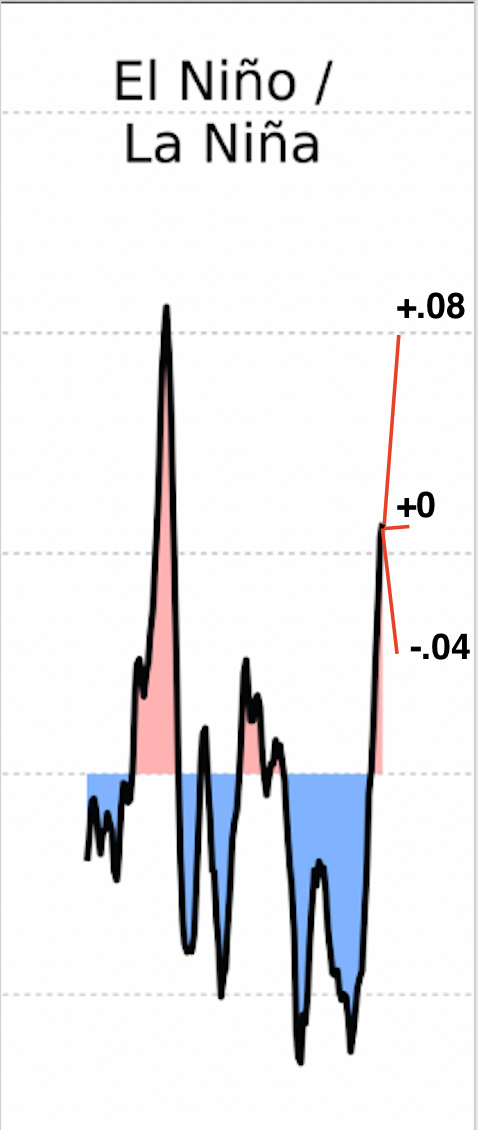
This market intentionally excludes the general rising levels of greenhouse gasses from human emissions. The intent is to capture year-specific variables.
Currently, scientists seem unsure what to make of 2023's extreme heats. This is fueling uncertainty about 2024. Are the causes of 2023 things that we can expect to continue into 2024, or are they adhoc, random confluences of events that will wane? This market is an attempt to understand what scientists will view as the primary drivers of 2024's global average temperature relative to 2023.
This is a auto-arbitraging, single answer market. I will only add new answers that feel mutually exclusive with existing answers, suggestions are welcome. There will inevitably be some overlap with answers (eg, albedo changes x solar geoengineering). I will attempt to minimize it, but in doubt lean towards resolving towards the more specific one.
The equation for the resolution of a given answer will be:

Where i is a factor, and x(i,y) is that factor's contribution for a given year.
At the end of 2024, I will read the retrospectives from:
I will resolve each answer on this market to PROB based on how dominant that factor is in their analysis of 2024 temperatures. For example, a hypothetical retrospective like
2024 shattered temperature records, driven by an unexpectedly sustained El Niño combined with rising greenhouse gasses. Scientists also believe that Hawaiian volcanic activity also played a role, although the size of the impact is uncertain.
would, taken in isolation, imply a resolution of something like 90% "El Niño/La Niña", 10% "Volcanic activity". I will resolve in proportion to the averaged temperature impact size (in either direction) if given, but will fall back to vibes if it is not.
Note that this is about change relative to 2023. Here are some hypothetical continuations to El Niño in 2024, and how they would evaluate:

2023 Example:
This graph from Berkeley Earth is a gold standard for how I intend to resolve:

Breaking down year/year changes, it seems like the relative contributions are:
El Niño/La Niña: +.2
Solar Cycle: +.05
Hunga Tonga: +.03
Marine Fuel: +.025
Which would imply a resolution of:
El Niño/La Niña: 66%
Solar Cycle: 16%
Volcanic eruptions: 10%
Marine Fuel: 8%
While all of these contributions are positive, I'll take the absolute value of the contribution, so negative contributions will weight equally.
I will not bet in this market.
Related questions
@ScottSupak Yup, the impact of greenhouse gasses this year is highly certain and more or less baked in. That’s why I’m excluding it from this market, it’s not interesting or valuable to predict, unlike factors that have more uncertainty.
@StevenK So if volcanic eruptions affected the temperature in 2023 and then stopped affecting it in 2024, does that mean it partially resolves to volcanic eruptions?
@StevenK Yes! It also means that if El Niño has the same impact on temperatures in 2024 that it had in 2023, it would resolve to 0%.
@DanMan314 So basically we want to be looking at the derivatives of these graphs?
@StevenK Pretty much, as a first approximation. The equation for a given factor's resolution would be:

@DanMan314 (I don't think the text was actually unclear, I was just mentally substituting my assumptions and failing to look at the 2024 number.)
